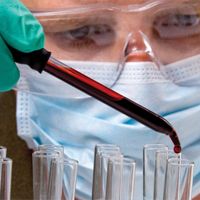Article
Success of anti-TNF Therapy for IBD May Depend on Serum Level
Author(s):
Study results suggest a significant association between serum levels of anti-tumor necrosis factor agents and the level of mucosal healing for patients with inflammatory bowel disease.

A retrospective study in Clinical Gastroenterology and Hepatology suggests a significant association between serum levels of anti-tumor necrosis factor (TNF) agents and the level of mucosal healing for patients with inflammatory bowel disease (IBD).
Since anti-TNF agents were developed, their use in the treatment of IBD has evolved significantly. While the medications work well for many patients, there is a subgroup of IBD sufferers who fail to respond or who lose response to these otherwise very effective drugs. Even for those patients who do respond, it is not yet well known at what level of treatment anti-TNF medications should be delivered. The issue is of clinical importance, because while the anti-TNFs are generally well-tolerated, cytokine manipulation also has potentially deleterious consequences.
In the current review, the researchers performed a retrospective cross-sectional study of 145 patients with IBD treated with infliximab (n=78) or adalimumab (n=67) at a medical center in Israel from 2009 through 2014. They collected data from colonoscopy examinations. Mucosal healing was defined as simple endoscopic score of <3 or a Mayo score ≤1. These data were compared with serum levels of anti-TNF agents, clinical scores, and levels of c-reactive protein.
They found what they called a “therapeutic window”: serum levels of 6—10 μg/ml for infliximab and 8–12 μg/ml for adalimumab. Serum levels within this window are required to achieve mucosal healing in 80%–90% of patients with IBD. “Exceeding these levels produces only a negligible gain in proportion of patients with mucosal healing,” the researchers noted.
Levels of infliximab above 5 μg/ml (area under the curve=0.75, P<.0001) and levels of adalimumab above 7.1 μg/ml (area under the curve=0.7, P=.004) identified patients with mucosal healing with 85% specificity. Increasing levels of infliximab beyond 8 μg/ml produced only minimal increases in the rate of mucosal healing, whereas the association between higher level of adalimumab and increased rate of mucosal healing reached a plateau at 12 μg/ml.
In patients with measurable levels of infliximab >3 μg/ml, the presence of antibodies to infliximab was associated with a lower rate of mucosal healing compared to patients with similar drug level without antibodies (16% versus 50%, respectively, P=.003).
The study authors would like to see further research on both optimum serum levels and any potential long-term consequences of using anti-TNF therapy to treat IBD.





